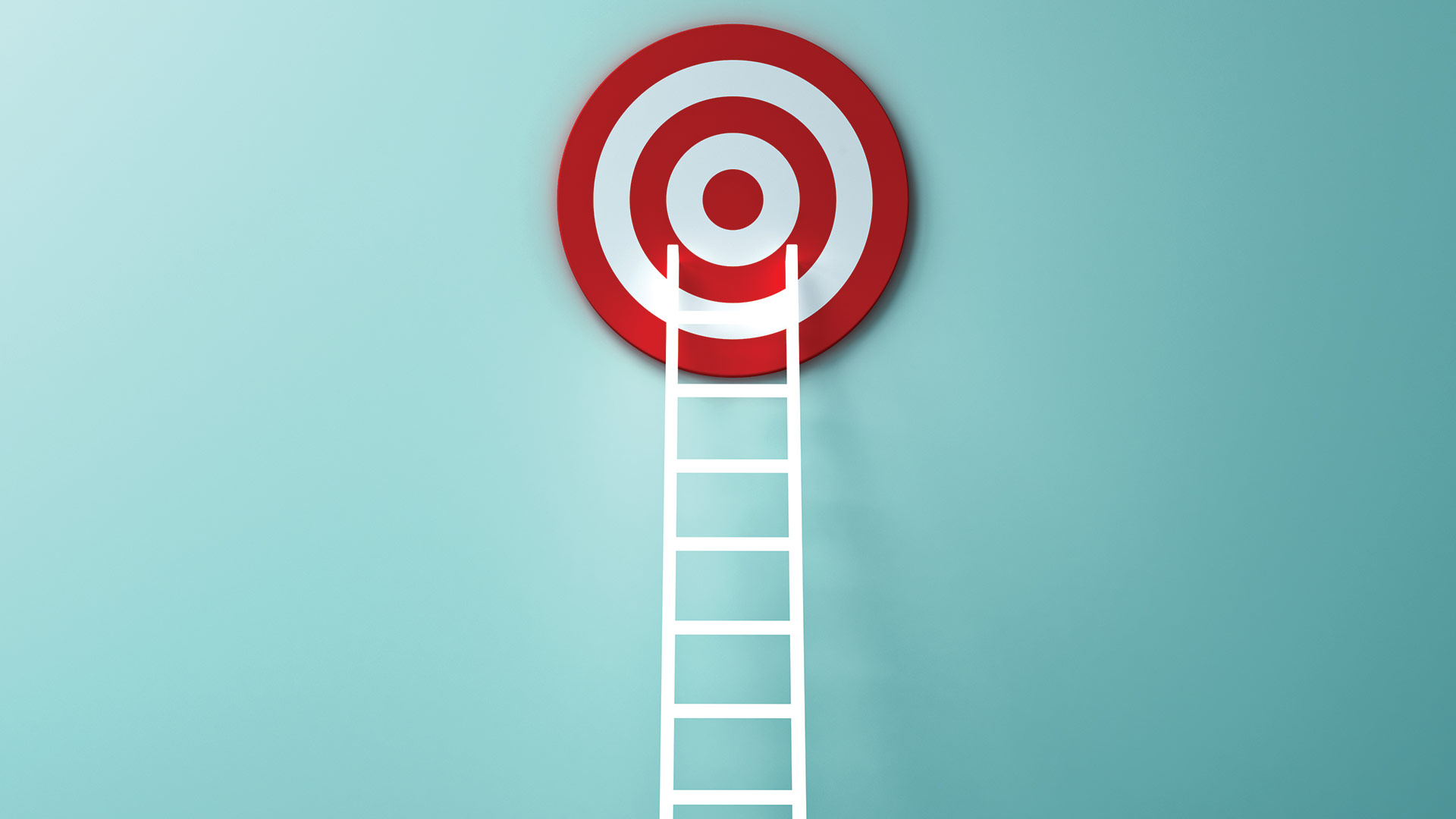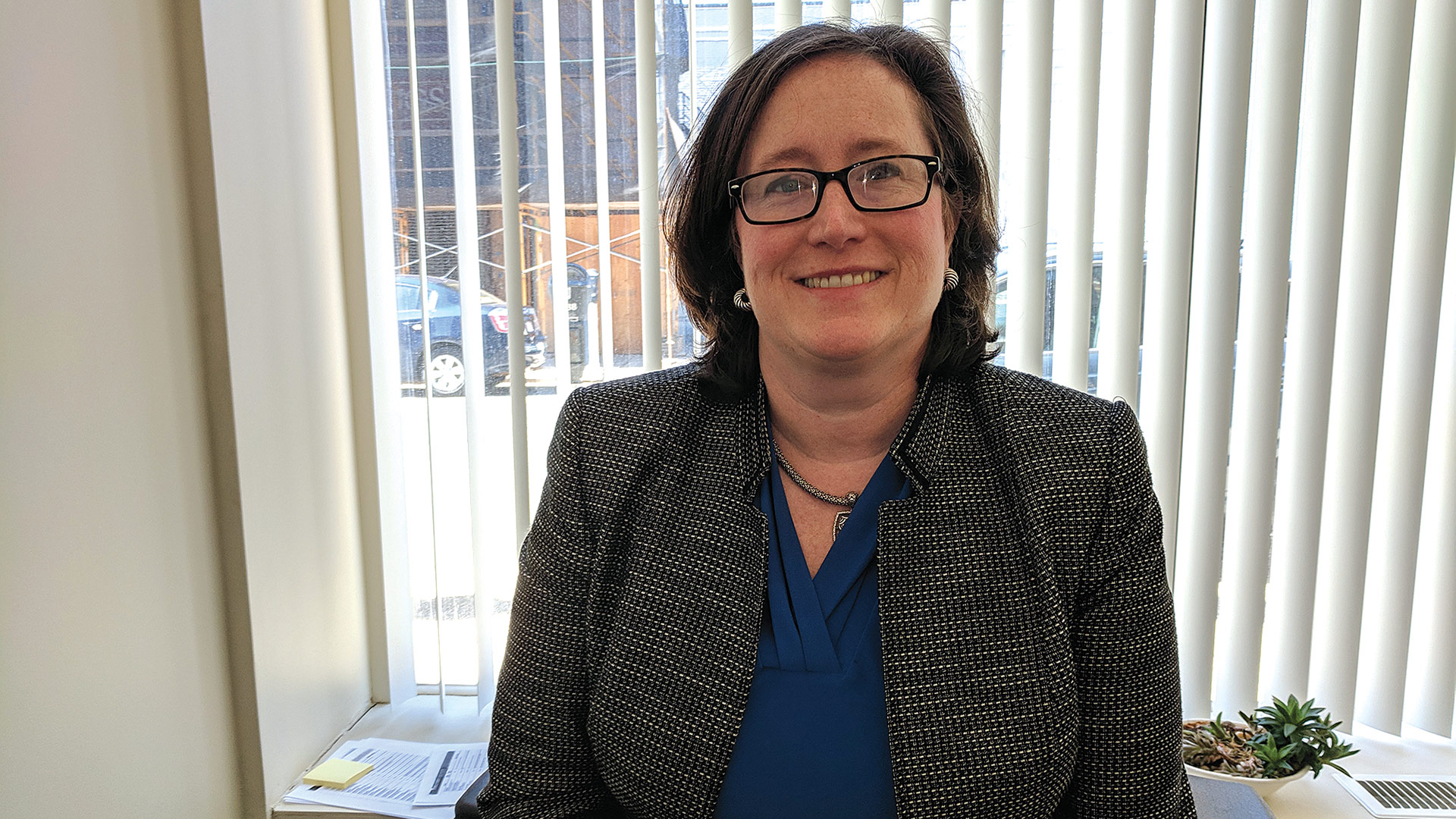
Business Group Becomes ‘Critical Friend’ to Springfield Schools
Grade Expectations
 Trisha Canavan tells the story often, and for a reason — it resonates with everyone who hears it.
Trisha Canavan tells the story often, and for a reason — it resonates with everyone who hears it.
United Personnel, the staffing agency she serves as president and CEO, used to make candidates for jobs in warehousing and manufacturing, two of the company’s strongest niches, take and pass what she called a “basic math test” before they could be considered for placement with a client.
That’s ‘used to.’
United stopped the practice some time back, said Canavan, because no one — and she was only slightly exaggerating when she says ‘no one’ — passed the test.
“This was a very, very basic math-skills test, fourth- or fifth-grade level if I had to guess,” said Canavan, a former educator herself (she taught at Berkshire Community College and Cambridge Rindge & Latin School). “We’re talking about basic measurements with a ruler or tape measure, addition, subtraction, multiplication, and division, and pretty much everybody, I would say 95% of those who took it, was unable to get a passing grade.
“We had used it as a screening tool but stopped doing that — otherwise, we wouldn’t have any employees,” she went on. “This wasn’t just people from Springfield, but because our headquarters are in Springfield, we’re seeing a lot of Springfield residents who really don’t have the basic knowledge to be successful.”
With these experiences concerning the math test ringing in her head — and filling her with frustration — Canavan offered a resounding ‘yes’ when asked a few years ago if she would like to join a group called Springfield Business Leaders for Education, or SBLE, as it has come to be called, a name that certainly tells all or most of the story.
This is a group of Springfield-area business leaders focused on education in the community and, more specifically, strategies for improving it. John Davis, president of the Irene E. and George A. Davis Foundation, which helped lead efforts to create the SBLE and now co-chairs it with Canavan, called it “a critical friend of the Springfield public school system.” And by critical, he meant both important and judicious in its assessment of what’s happening — and not happening.
The group’s unofficial mission is to ensure that students not only receive a diploma signifying they have fulfilled the requirements needed to graduate from high school, but that they have the skills needed to succeed in the workplace. One is clearly not the same as the other, said those we spoke with, using one loud, resounding voice.
“This was a very, very basic math-skills test, fourth- or fifth-grade level if I had to guess. We’re taking about basic measurements with a ruler or tape measure, addition, subtraction, multiplication, and division, and pretty much everybody, I would say 95% of those who took it, was unable to get a passing grade.”
Put another way — not that Canavan actually said this — the group exists to perhaps create a day when United Personnel can dust off the basic math test it put on the shelf, once again give it to candidates, and see the vast majority of them pass.
That day, unfortunately, seems far off, she said, adding that SBLE is obviously working to bring it closer. It does this through advocacy, enlightenng its members about the issues in education — it recently hosted a well-attended talk by Gov. Charlie Baker on the subject of education reform at the Basketball Hall of Fame — and, most importantly, through partnerships with other advocacy groups.
These include Massachusetts Parents United (MPU), a statewide group comprised of concerned parents, and the Massachusetts Business Alliance for Education (MBAE), which has a mission similar to SBLE, but is also statewide.

Trisha Canavan says too many students are graduating from high school without the basic skills needed to succeed in the workplace.
Keri Rodrigues, founder of Mass. Parents United, now headquartered on Maple Street in Springfield, said the group started as three women meeting in a public library. Today, it has more than 7,000 members and is the largest urban parent-advocacy organization in the Commonwealth.
The work of these groups, individually and collectively, comes at what many describe as a watershed moment for education reform in Massachusetts — when dueling education bills (more than $1 billion apart in overall funding) are being debated in the State House and when those in Gateway cities such as Springfield say students of color are disadvantaged by what they call systemic educational inequity.
Collectively, these groups intend to use this critical moment to press for real and lasting change, adequate funding, far greater accountability when it comes to how education dollars are spent, and, overall, an end to those inequities they cited.
For this issue, BusinessWest talked with those involved with SBLE and other advocacy groups about just what is at stake when it comes to education reform in the Commonwealth, but also the broad work of making students workforce-ready when their days in school are over.
School of Thought
It’s called “Defining Our Path: A Strategic Plan for Education in Worcester 2018-2023.”
It’s a 40-plus-page document that, as the name suggests, is a strategic plan for the school system for the next five years. Sections in the document have titles ranging from “Culture of Innovation” to “Investing in Educators” to “Academic Excellence.”
Davis presented BusinessWest with a copy for the sole purpose of pointing out that Springfield doesn’t have such a plan — and it desperately needs one.
“There are three things that have to happen in Springfield, three questions to be asked and answered, and it’s an open discussion among all the players — the parents, the educators, the political establishment, and others,” he said. “First, where are we? We need a real, open, and honest discussion about that, because it’s never really happened. Two, where are we going, and where do we want to go? What skills will our kids need?’ And, three, how do we get there? We have to come up with a plan.”
Work to create such a plan has become a priority for the SBLE, said Davis, adding that, as it goes about such work, it knows it needs to partner with other groups, and especially those that involve parents.
Which brings us to the MPU. Rodrigues said she started the organization out of frustration born from how the system was failing her three children, especially one with special needs.

Keri Rodrigues says Massachusetts Parents United was formed to give a voice to an important, and often overlooked, constituency.
“I saw that my child was already falling through the cracks in kindergarten,” she told BusinessWest, adding that she knew there were others and that it was time to advocate on their behalf. “I saw all these inequities with my kids and could actually fight a little bit. I decided to use my skills as an organizer to help those who were underserved. But I was also looking around and seeing how parents were being left out of the conversation completely.
“Parents are kind of pushed in when it’s convenient and we want to hear them and their little anecdotes, and then we push them along,” she continued. “But we’re prime stakeholders; we have to be advocates for our kids, who are supposed to be the center of the education conversation. So many of us are survivors of our public education system — I was a foster kid myself and got expelled from a public high school and was lucky to get to college — and then to watch my children, from kindergarten on, be underserved, is really frustrating.”
Not wanting to see that cycle perpetuated, she started MPU, which has steadily grown both its membership and its influence, said Rodrigues, and has been especially visible during the ongoing debate over education reform and school funding.
“A few weeks ago, we had more than 150 parents get on buses and go directly to Beacon Hill and advocate for education funding,” she said, “and making sure there’s some accountability with how this money is spent.”
But as large and powerful a constituency as parents may be, MPU knew early on it needed allies in this ongoing fight, said Rodrigues, adding that MBAE has become such an ally.
“Parents are an important constituency, and so is the business community,” she explained. “We’re both invested in these outcomes in our children because it’s not just about getting them to graduation day and handing them a diploma; we want our kids to have access to these wonderful jobs.”
Ed Lambert, executive director of the MBAE, which has been in existence for nearly 30 years, agreed, and noted that, while significant progress has been achieved since the Education Reform Act was passed in 1993, there are still significant achievement gaps — and opportunity gaps — that exist in this state.
“Our achievement gaps are among the largest in the country,” he told BusinessWest. “Students are passing MCAS and graduating, but many are inadequately prepared for college and a career.”
Thus, MBAE, working in partnership with other groups, has been examining and using data to question and “critically, but diplomatically” challenge the establishment.
“We think that, with this next iteration of education reform, with the new funding that is going to come, particularly to the Gateway cities like Springfield, there is an opportunity to close those achievement gaps,” he said. “But only if there’s continued emphasis on improvement and reform.
“Money alone is not is not going to move the needle for a lot of students,” he went on. “We have data and information showing that, statewide, some school systems, with the same or comparable demographics, are spending much more, sometimes twice as much, per student, and not getting the results.”
Subjects Matter
Returning to the state of public education in Springfield, Davis and others said the city needs a strategic plan — and the state needs to further reform education — because inequities persist, and there are serious ramifications stemming from these inequities.
“I was very, very struck by the inequities that exist,” said Canavan, again speaking from experience as an educator and screener of potential employees. “Kids who are living in the surrounding suburbs have different experiences, different opportunities, and different outcomes than their peers in Springfield and other Gateway cities, and we should all be outraged, frankly.
“There have been improvements in the school system,” she went on. “But they’re too incremental for our kids to get where they need to be fast enough. And this is an economic-development issue; employers will not locate here, and they will not stay here, if they do not have the workers they need.”
Rodrigues agreed, noting that her group was inspired by, and outraged by, recent comments she attributed to Springfield’s school superintendent to the effect that the main problem with the city’s schools wasn’t one of performance or results, but merely one of “public relations.”
“That presentation wasn’t based in reality,” she said. “When you take a look at the numbers, the outcomes we’re getting for children … they show something much different. They were talking about growth percentiles, not proficiency.”

John Davis says Springfield lacks a strategic plan for its public school system and needs one moving forward.
Indeed, hard data suggests there are problems, and the numbers come to life in a document prepared for SBLE as it goes about its mission of education and advocacy.
Titled “A Call to Action: Building a 21st-century Education System,” the report uses numbers and words to paint a disturbing picture. Here are some examples:
• “Only 33% of third graders meet expectations for grade-level reading, which means that two-thirds of Springfield’s third-graders don’t read at grade level. Children who are not proficient readers are more likely to drop out, not attend college, and are more likely to be incarcerated.”
• “By eighth grade, only 22% are reading at grade level; only 19% are at grade level in math. That means nearly 80% of Springfield’s eighth-graders are not at grade level for math or reading.”
• “The graduation rate for Springfield’s Latino population is only 74%, and only 9% of Latinos have a bachelor’s degree.”
• “Springfield’s dropout rate is more than two times higher than the state average.”
• “While 72% of jobs will require a career certificate or college degree by 2020, only 17% of Springfield ninth-graders go on to earn a college degree or certificate within six years of leaving high school.”
The numbers are followed by that call to action, and for formation of a plan that will, among other things, improve the quality of education in Springfield by ensuring the attraction of talented, high-quality teachers; establish universal pre-K; introduce acceleration academies for immediate intervention in schools in critical condition; and lengthen school days for extended learning time with high-quality teachers.
And with that plan, those with SBLE and MPU want more transparency from school leaders and, overall, more accountability.
“We’re not getting the information, and we can’t even agree to the fact there’s a problem,” said Rodrigues. “If we’re lucky enough to get our kids to graduation day, we hand them a piece of paper that says, ‘you have a foundation, and you’re ready to access all of this opportunity in your future.’ And then we find out that the paper means nothing — they have to take two years of remedial courses before they can take a college-level course.”
Canavan agreed, and stressed, again, that lack of proficiency in school translates into both employment issues and economic-development issues.
“We continue to see a persistent skills gap, a persistent gap in work behaviors that would torpedo people’s efforts to be in the workforce,” she said in reference to what she’s observed in her business. “It’s creating more and more challenges for us as a company, but also for employers — we hear over and over again that they don’t have the qualified employees that they need to meet production needs and to meet operational needs.
“We need to look at not just whether people are qualified to get a job,” she went on, “but are they qualified, and do they have the persistence and problem-solving skills to keep a job?”
Doing the Math
Returning to the matter of that very basic math test that United Personnel once gave to candidates, Canavan said the exam had become, toward the end, what she called a “waste of paper.”
“If we used it as a screening tool, we literally would have been unable to run our business,” she said. “But what that means is that, when people go to work, they need much more training and support, and sometimes they can’t even be successful with that support and training.”
But if those tests can, indeed, become part of a movement that brings about real change and an end to the persistent inequities in education that still exist in this state, then they won’t be a waste at all.
That is Canavan’s hope, and the hope of all those in SBLE, MPU, and MBAE, who, as critical friends of the school system, have decided to take on a larger, more impactful role in trying to bring about change.
George O’Brien can be reached at [email protected]




